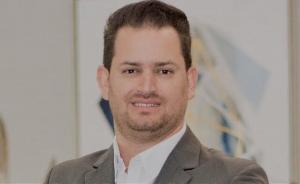Dante Ferreira Farias highlights how risk management evolves from a barrier to a strategic lever for innovation and organizational resilience.
Risk, when understood and applied with intelligence, becomes a pathway to innovation, operational efficiency, and competitive advantage.”
— Dante Ferreira Farias, Risk Management Specialist
ORLANDO, FL, UNITED STATES, August 8, 2025 /EINPresswire.com/ -- In today’s global economy, uncertainty has become a constant. Disruptions arise from multiple sources—economic volatility, regulatory reform, technological innovation, and geopolitical instability—reshaping business environments at a rapid pace. In this evolving context, risk is
no longer viewed solely as a threat to be mitigated. It is now approached as a strategic lever.This shift represents a fundamental change in how organizations interpret uncertainty. Traditionally confined to compliance and asset protection, risk management has emerged as a central component of organizational strategy and resilience. When embedded into long-term planning, it allows companies not only to endure disruption but to evolve and grow in response to it.
Among the professionals advancing this modern risk mindset is Dante Ferreira Farias. With recognized experience in auditing, compliance, and operational risk, Farias has contributed to the development of practical, results-driven frameworks across a range of sectors. His work underscores a foundational concept: risk, when understood and applied with intelligence, becomes a pathway to innovation, operational efficiency, and competitive advantage.
A core principle in Farias’s methodology is the integration of risk into all organizational levels. Risk is not an isolated concern managed solely by compliance departments. Instead, it is treated as a cross-functional responsibility that informs decision-making across business units. This perspective prioritizes anticipation over reaction, positioning companies to navigate shifting conditions with confidence and structure.
Technology plays a significant role in this approach. Through the deployment of integrated systems and real-time monitoring tools, Farias supports organizations in identifying vulnerabilities early and responding promptly. These systems provide visibility across operations, enabling leaders to act on insights and reinforce accountability. Rather than merely detecting risks, they create an environment where decisions are made with greater clarity and consistency.
However, long-term resilience depends on more than systems. It requires a culture that empowers individuals. Farias emphasizes the importance of decentralized decision-making, transparency in communication, and the democratization of data access. By enabling teams to contribute actively to risk identification and response, organizations foster adaptability and reduce reliance on top-down intervention. This cultural shift embeds risk awareness into daily operations and enhances responsiveness across all levels.
Throughout his career, Farias has helped organizations redefine how risk aligns with strategy. His frameworks are tailored to reflect both regulatory obligations and broader performance goals. These models go beyond compliance to support governance, transparency, and value creation. The result is a more integrated, forward-looking approach to organizational management.
This approach is particularly relevant in complex markets where local regulations intersect with global expectations. In regions such as Latin America, navigating national rules while meeting international benchmarks presents unique challenges. Farias’s familiarity with these dynamics—especially the interaction between Brazilian and U.S. systems—enables him to guide businesses through these transitions with precision and structure.
As industries adapt to persistent transformation, organizations are rethinking their relationship with uncertainty. Leadership now requires a more refined capacity to anticipate change, absorb shocks, and maintain continuity. Professionals who understand risk as a strategic discipline are playing a critical role in enabling this shift. Their insights contribute not only to stability, but also to innovation and long-term performance.
The evolving global environment rewards those prepared to think beyond immediate threats. Organizations that embrace risk as part of strategic design are better positioned to lead through change. Their ability to make informed, timely decisions in dynamic conditions becomes a competitive advantage in itself.
Looking forward, risk management will remain a key differentiator. The ability to respond to volatility with structure and purpose is essential in today’s interconnected world. Professionals who approach risk with depth, rigor, and adaptability will help shape the next generation of leadership.
As companies prepare for future challenges, the role of strategic risk management continues to expand. It is no longer about avoiding loss. It is about creating conditions for sustainable success. By treating risk as an opportunity for insight and action, organizations build the resilience required to thrive in a world where certainty is increasingly rare.



No comments:
Post a Comment